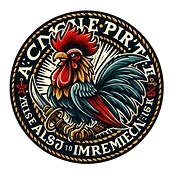I always thought /usr was for “user”… TIL
It did, let me explain:
On the original (ie Thompson and Ritchie at Bell in 1969-71), I think it was a PDP-11, they installed to a 512kb hard disk.
As their “stuff” grew they needed to sprawl the OS to another drive, so they mounted it under /usr and threw OS components that didn’t fit.
https://landley.net/writing/unixpaths.pdf
I’ve done the same, outgrew so you mount under a tree to keep going, it just never became a historical artifact.
Huh. I did as well. Like /use/bin was for user installed applications and such. You learn something everyday.
It is, this infographic is wrong. Or I guess technically some other standard could define it like the infographic, but the Filesystem Hierarchy Standard defines it as a secondary hierarchy specifically for user data.
/usr used to be the user home directory on Unix…well most of them. I think Solaris/SunOS has always been /export/home as I recall.
Those are directories, not filesystems.
A pedantic thing to say, surely, but the title really should’ve been: “Linux Directory Structure” – ‘Linux filesystems’ (the title in the graphic) refers to a different topic entirely; the title of this post mitigates the confusion a bit, though still, ‘directory structure’ is the better term.
Sure but for example I understand that /dev and /proc are actually kind of filesystems on their own
To be more pedantic the correct title would be the Filesystem Hierarchy Standard (FHS)…which describes the directory structures
Right?
I was expecting superiors to the fat & exfat file storage systems
Yep, You are right. Done
Is there a version of this that wasn’t awkwardly resized?
Best I could find is this copy on imgur.
Is it just me, or are the definitions for /sys and /proc mixed up?
Nah, it’s just that
/procis incorrect - it contains information about running processes, as well as kernel data structures as visible by the process reading them.No I thinks is basically right although could be better worded maybe
/sys is virtual file structure for kernel system info
/proc is virtual file structure of kernel process info
My understanding is /proc came first but was abused/free for all and started being used for all sorts of non standard/process kernel access. So /sys was created with stricter rules to make it more standardised.
A blast from the past!
I never understood the title for /usr. Now I do. Thanks!
It’s just short for “user;” “User System Resources” is probably a backronym.
deleted by creator
This email explains it in detail: http://lists.busybox.net/pipermail/busybox/2010-December/074114.html
TLDR:
/usrstands foruserThat’s what I’d always thought. Thanks for correcting the bad info from the image. I’d hate to carry that bad info forward.
what a mess
There’s a little historical baggage, but look at Windows: multiple letters for drives, and all of the paths can be modified, so you have to ask Windows where any important directory is physically mapped (like SystemRoot or Documents or Temp or Roaming AppData or many others), because it doesn’t have this nice consistent structure like Linux. Linux presents a logical layer and manages the physical location automatically. Windows makes you do the logical lookup yourself, but doesn’t enforce it, so inexperienced programmers make assumptions and put stuff where the path usually is.
That’s part of why logging in to Windows over a slow connection can take forever if you have a bunch of Electron apps installed: they’ve mismapped their temp/cache directory under the Roaming AppData, so it gets synched at every login, often GiB of data, and they refuse to fix it.
I switched to Linux a few years ago and you are not wrong.
Windows is a nightmare with directory organization.
Saved games can go:
- My Documents/
- My Documents/Games
- My Documents/My Games
- <app>/saved-games
I’m more used to seeing shit like: c:/users/username/appdata/local/developer/game/engine/data3/saves/profile0/epe90_cats90-slot203.nonstandardfileformat
And then their non standard file format turns out to just be a zip file or gzipped JSON data 😂
New knowledge. Thanks.
I have always wondered why there was a developer folder(/dev)
Now i know that the government is trying to make people think it stands for something else so they can replace all programmers with advanced random number generators
Also /lib is where some people keep discarded capitalists
/lib/tar.d/
That’s a US-only extension mainly used by Facebook and Twitter members.
The icon for media reminds me of a bidet on a floor plan.
huh… an exe in my /bin ?
sus…
I learned about 16 years ago on a Solaris course that /usr wasn’t “user”, I still say “user”, but I’m happy to see the information spreading that that isn’t what it actually is.
I used to pronounce it like yuzr, knowing that it wasn’t user, but not knowing what it was.
Now I have better context. Maybe I’ll go with U.S.R.If you want to confuse people… I pronounce /etc as “ets”, but one of my coworkers recently called it “slash e t c” and I had to ask him to repeat it a couple times before I figured out what he meant…
Well, considering that I am with coworkers who don’t remember when to and not to put the ‘/’ at the start of the file path (despite me explaining it to them multiple times), “slash e t c” is probably the better way.
usr did originally mean user and held user data.
Pretty sure this is a bacronym
I learned that just now.
I always thought it was user and never questioned it. Yeah man there’s shared libraries in there for all the users, so it’s user. This makes more sense now.
It’s going to be TOUGH to mentally replace.
Wow, what an odd coincidence.
I don’t get why this sort of picture always gets posted and upvoted when it’s wrong for most distros nowadays.
Can you recommend one that is correct? I use pop_os (Ubuntu) and Arch. Kinda curious about either one
Not aware of any correct pictures, but I can tell you what’s wrong with this one
- /usr: explaining it as “Unix System Resources” is a bit vague
- /bin: /bin is usually a symlink to /usr/bin
- /sbin: /sbin is usually a symlink to /usr/sbin, distros like Fedora are also looking into merging sbin into bin
- /opt: many, I’d say most, “add-on applications” put themselves in bin
- /media: /media is usually a symlink to /run/media, also weird to mention CD-ROMs when flash drives and other forms of storage get mounted here by default
- /mnt: i would disagree about the temporary part, as I mentioned before, stuff like flash drives are usually mounted in /run/media by default
- /root: the root user is usually not enabled on home systems
- /lib: /lib is usually a symlink to /usr/lib
I would also like the mention that the FHS standard wasn’t designed to be elegant, well thought out system. It mainly documents how the filesystem has been traditionally laid out. I forget which folder(s), but once a new folder has been made just because the main hard drive in a developer’s system filled up so they created a new folder named something different on a secondary hard drive.
Thanks for this. I’m always confused by the layout and this tend to stick to putting things in the same places, even if they’re wrong :)
On my distro(Bazzite), /mnt is only a symlink to /var/mnt. Not sure why, but only found out the other day.
I’m using Silverblue and it also symlinks to /var/mnt. I don’t think it does that on traditional distros, like Fedora 40 Workstation.
I assume it is because /var can be written to while the rest of the filesystem ( outside /home ) is expected to be read-only.
See file-hierarchy(7).
It seems handy when you’re learning about stuff but only when you haven’t learned enough to realize it’s not correct.
If my /bin contains exe files, something has gone very wrong somewhere…
Also, all these infographics are a sad casualty of the /usr/bin merge.


















